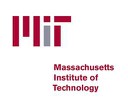Pros and cons of open source licenses
Free software is a wide range of software solutions in which the user’s rights (“freedoms”) for unlimited installation, launch, as well as free use, study, distribution and modification (improvement) of programs are legally protected by copyright with free licenses.
License Features:
1. Apache Software License
2. BSD
3. GNU General Public License
4. MIT Licenses
5. Mozilla Public License
6. World Wide Web Consortium
Apache Software License

Apache Software License - Apache Software Foundation free software license.
"pros"
- the right to use the software for any purpose, freely distribute, modify, and distribute modified copies
- does not condition the software distribution license to be unchanged
- does not even insist on maintaining its free and open status
- compatibility with the GPL
"cons"
- inform Apache of the fact the use of source code, licensed under the Apache license
- distribution of the software must be placed lICENSE and NOTICE files to the root directory (in each licensed emom file all initial information about copyright or patent must be maintained in each modified file must be added to the changes carried out information)
the BSD License

BSD License, University of Berkeley Software License (BSD license) is a license agreement first used to distribute UNIX-like BSD operating systems.
“Pluses”
- one of the most popular licenses for free software and are used for many programs
- it is allowed to redistribute and use both in the form of source code and in binary form, with or without modifications (under certain conditions, which can be found in “ modified »BSD license)
- as compared to other common licenses of free software (eg, GNU General Public License) BSD license imposes fewer restrictions on the user
- allows the BSD proprietary kommerches th use of the software
- many licenses originated from BSD or are similar to it
“cons”
- the rights to the original BSD distribution are officially owned by the “trustees of the University of California”
GNU General Public License

GNU General Public License (sometimes translated, such as the GNU General Public License, Universal Public License GNU General Public License, or GNU agreement) - a license for free software, created as part of the GNU project in 1988,
"plus"
- the work of licensing under the GNU GPL, the author does not waive the right to be its author
- free app Ska program, for any purpose
- freedom to study how the program works and its modifications (a precondition for this is access to the source code)
- freedom to distribute copies
- freedom to improve the program, and release improvements to public access (a precondition for this is access to the source code)
" cons »
- the GPL requires the GNU spread with binary files (including the same) source code or a written commitment to provide its
MIT License

MIT License (English MIT License.) - a group of licenses, developed by Massachusetts m Technological Institute for free software distribution.
“Pluses”
- licenses are not “copyleft”
- since there is no copyright for this license, other groups have the right to use and modify it to meet their goals
- clearly speaks of the rights of the end user, including the rights to use, copy, modify, incorporate into another source code, publish, distribute, sublicense and / or sales of licensed software
- the license is considered an academic license, that is, recognized as
“cons" suitable for use in the field of scientific research
- the MIT license is most consistent with the three-point BS License D
Mozilla Public License

Mozilla Public License (MPL for short) is one of the free software licenses. Version 1.0 was developed by Mitchell Baker during her time as an attorney at Netscape Communications Corporation. Version 1.1 was developed as part of the Mozilla Foundation. The MPL contains the features of a modified BSD and GNU General Public License.
“Pros”
- MPL approved as an open source Open Source Initiative
license - MPL license provides weak copyleft
- adapted by other developers, especially Sun Microsystems
“cons”
- source code, copied or modified under the MPL license, must be licensed under MPL rules
- The Free Software Foundation does not recommend using MPL in its purest form, that is, without using multiple licensing together with the GPL or a license compatible with it
- the code under the MPL license can be combined in one program with proprietary files (for example, Netscape 6 and 7 were proprietary versions of Mozilla Suite and Mozilla Firefox starting with version 8. Thus, AOL Time Warner has exclusive rights to these proprietary versions of Netscape)
World Wide Web

Consortium World Wide Web Consortium Web Consortium, W3C) is an organization that develops and implements technology standards for the World Wide Web. The consortium is led by Tim Berners-Lee, the author of many developments in the field of information technology.
“Pluses”
- the goal of the W3C is to help computer programs achieve interoperability on the Web
- apply common standards on the Web
- make the network accessible to people with disabilities
- the recommendations of the World Wide Web Consortium are open, that is, not protected by patents and can be implemented by anyone without any financial contributions to a consortium
- consortium recommendations are built in a way that does not violate the partial implementation of common standards (some popular recommendations have several levels of embedded Nia - as you prefer)
- W3C recommendation is often a well-crafted and detailed
- most of the recommendations are available for all types of users - from expert to novice programmers webmaster
- the consortium as a whole pays much more attention to open source projects
- currently the Consortium is perhaps the most authoritative organization in the field of standardization of the World Wide Web
“cons”
- any W3C standard goes through 4 stages of approval (working draft, final convocation, possible recommendations and suggested recommendation)
upd: Thanks for the whitedragon add- ons :
License world: understanding the GNU GPL: habrahabr.ru/blogs/Dura_Lex/45808
License world: Frequently asked questions about the GNU GPL: habrahabr.ru/blogs/Dura_Lex/45878
License world : parsing msya the BSD license: habrahabr.ru/blogs/Dura_Lex/46329
The world of licenses: dealing with the MIT license: habrahabr.ru/blogs/Dura_Lex/46809
License Features:
1. Apache Software License
2. BSD
3. GNU General Public License
4. MIT Licenses
5. Mozilla Public License
6. World Wide Web Consortium
Apache Software License

Apache Software License - Apache Software Foundation free software license.
"pros"
- the right to use the software for any purpose, freely distribute, modify, and distribute modified copies
- does not condition the software distribution license to be unchanged
- does not even insist on maintaining its free and open status
- compatibility with the GPL
"cons"
- inform Apache of the fact the use of source code, licensed under the Apache license
- distribution of the software must be placed lICENSE and NOTICE files to the root directory (in each licensed emom file all initial information about copyright or patent must be maintained in each modified file must be added to the changes carried out information)
the BSD License

BSD License, University of Berkeley Software License (BSD license) is a license agreement first used to distribute UNIX-like BSD operating systems.
“Pluses”
- one of the most popular licenses for free software and are used for many programs
- it is allowed to redistribute and use both in the form of source code and in binary form, with or without modifications (under certain conditions, which can be found in “ modified »BSD license)
- as compared to other common licenses of free software (eg, GNU General Public License) BSD license imposes fewer restrictions on the user
- allows the BSD proprietary kommerches th use of the software
- many licenses originated from BSD or are similar to it
“cons”
- the rights to the original BSD distribution are officially owned by the “trustees of the University of California”
GNU General Public License

GNU General Public License (sometimes translated, such as the GNU General Public License, Universal Public License GNU General Public License, or GNU agreement) - a license for free software, created as part of the GNU project in 1988,
"plus"
- the work of licensing under the GNU GPL, the author does not waive the right to be its author
- free app Ska program, for any purpose
- freedom to study how the program works and its modifications (a precondition for this is access to the source code)
- freedom to distribute copies
- freedom to improve the program, and release improvements to public access (a precondition for this is access to the source code)
" cons »
- the GPL requires the GNU spread with binary files (including the same) source code or a written commitment to provide its
MIT License

MIT License (English MIT License.) - a group of licenses, developed by Massachusetts m Technological Institute for free software distribution.
“Pluses”
- licenses are not “copyleft”
- since there is no copyright for this license, other groups have the right to use and modify it to meet their goals
- clearly speaks of the rights of the end user, including the rights to use, copy, modify, incorporate into another source code, publish, distribute, sublicense and / or sales of licensed software
- the license is considered an academic license, that is, recognized as
“cons" suitable for use in the field of scientific research
- the MIT license is most consistent with the three-point BS License D
Mozilla Public License

Mozilla Public License (MPL for short) is one of the free software licenses. Version 1.0 was developed by Mitchell Baker during her time as an attorney at Netscape Communications Corporation. Version 1.1 was developed as part of the Mozilla Foundation. The MPL contains the features of a modified BSD and GNU General Public License.
“Pros”
- MPL approved as an open source Open Source Initiative
license - MPL license provides weak copyleft
- adapted by other developers, especially Sun Microsystems
“cons”
- source code, copied or modified under the MPL license, must be licensed under MPL rules
- The Free Software Foundation does not recommend using MPL in its purest form, that is, without using multiple licensing together with the GPL or a license compatible with it
- the code under the MPL license can be combined in one program with proprietary files (for example, Netscape 6 and 7 were proprietary versions of Mozilla Suite and Mozilla Firefox starting with version 8. Thus, AOL Time Warner has exclusive rights to these proprietary versions of Netscape)
World Wide Web

Consortium World Wide Web Consortium Web Consortium, W3C) is an organization that develops and implements technology standards for the World Wide Web. The consortium is led by Tim Berners-Lee, the author of many developments in the field of information technology.
“Pluses”
- the goal of the W3C is to help computer programs achieve interoperability on the Web
- apply common standards on the Web
- make the network accessible to people with disabilities
- the recommendations of the World Wide Web Consortium are open, that is, not protected by patents and can be implemented by anyone without any financial contributions to a consortium
- consortium recommendations are built in a way that does not violate the partial implementation of common standards (some popular recommendations have several levels of embedded Nia - as you prefer)
- W3C recommendation is often a well-crafted and detailed
- most of the recommendations are available for all types of users - from expert to novice programmers webmaster
- the consortium as a whole pays much more attention to open source projects
- currently the Consortium is perhaps the most authoritative organization in the field of standardization of the World Wide Web
“cons”
- any W3C standard goes through 4 stages of approval (working draft, final convocation, possible recommendations and suggested recommendation)
upd: Thanks for the whitedragon add- ons :
License world: understanding the GNU GPL: habrahabr.ru/blogs/Dura_Lex/45808
License world: Frequently asked questions about the GNU GPL: habrahabr.ru/blogs/Dura_Lex/45878
License world : parsing msya the BSD license: habrahabr.ru/blogs/Dura_Lex/46329
The world of licenses: dealing with the MIT license: habrahabr.ru/blogs/Dura_Lex/46809
